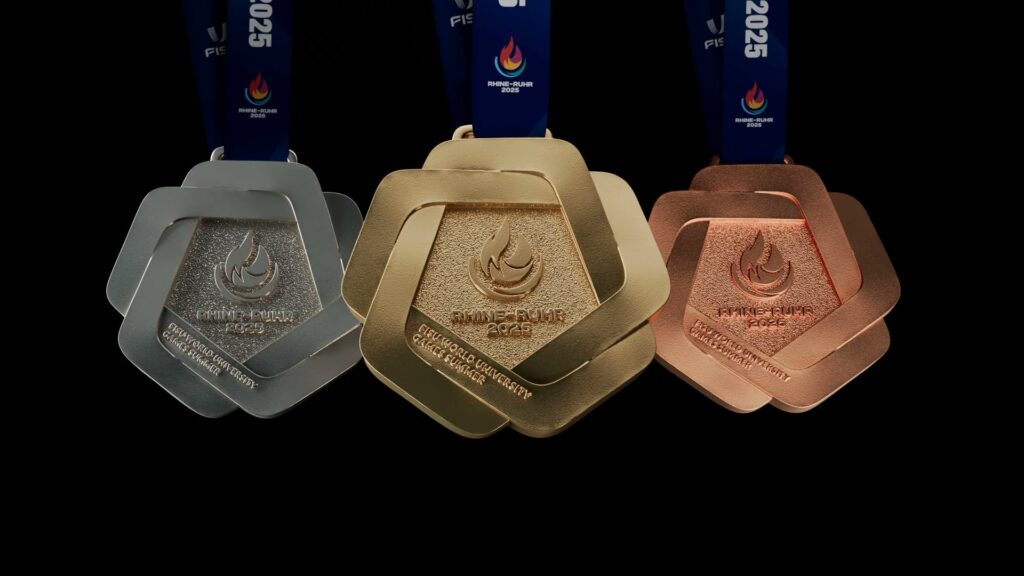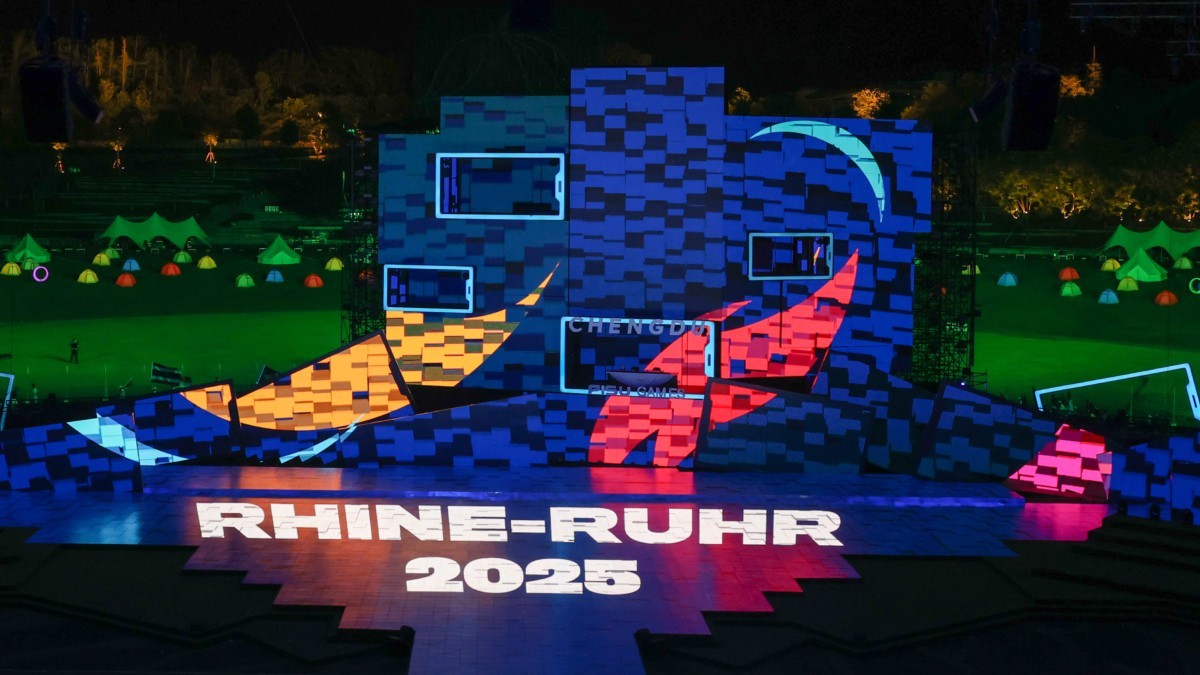BY ADEKOLA BOLUWAJI NIFEMI
The largest-ever edition of the FISU World University Games opened on Wednesday, bringing together 9,200 athletes from 100 countries, 234 medal events and six host cities. Olympic legacy, cultural diversity and academic excellence set the tone in Rhine-Ruhr.
The story began in Turin in 1959, when the event, then known as the Universiade, took its first steps as a global celebration of university sport. Sixty-five years later, the summer edition of that legacy comes with a new identity: the FISU World University Games.
Following the Winter Games held this January in Torino, capital of the Piedmont region, Germany now takes the baton with the FISU Summer Games Rhine-Ruhr 2025, poised to make a lasting mark through its scale, ambition and symbolic setting.
With over 9,200 athletes and officials confirmed, and under the long-standing motto, ‘Excellence in Mind and Body’, six German cities (Bochum, Duisburg, Essen, Mülheim an der Ruhr, Hagen and Berlin) are once again set to turn the country into a global hub of university sport.
Over twelve days of competition, 234 medals will be up for grabs across 18 sports, with a common purpose echoing throughout the venues: celebrating the unique synergy between high-level sport and academic life. A fusion of effort, talent and future that can only emerge in this extraordinary stage, where sport is written in capital letters and knowledge is never left behind. That is, and will remain, the living essence of the Universiade spirit.
The opening ceremony will take place on Wednesday evening at the Schauinsland-Reisen-Arena in Duisburg, featuring the traditional athletes’ parade, the anthem Gaudeamus Igitur, and a headline performance by German music star Ayliva. The lighting of the cauldron will mark not only the formal beginning of the competition: it will spark twelve days of emotion, connection and excellence in a Games that, for many, already pulse as the most vibrant in the history of university sport.
“After years of intense preparation, we are ready to show the world what this region has to offer,” said Niklas Börger, head of the Organising Committee. “We are not only setting sporting standards, but also sending a social message of community, diversity and sustainability.”
One of the most distinctive features will be the geographic layout of the event. Bochum will host athletics at the refurbished Lohrheide Stadium and both 3×3 and wheelchair 3×3 basketball at the iconic Jahrhunderthalle. In Duisburg, the focus will be on the sports park area, where beach volleyball and basketball will take place, as well as rowing at the Regattabahn and water polo at the ASC.
Essen will serve as the indoor sports hub, with judo, taekwondo, fencing, table tennis, gymnastics and more to be held at the Messe Essen exhibition complex. Badminton will be played in Mülheim, basketball in Hagen, and swimming, diving and volleyball in Berlin, making use of the capital’s Olympic-standard facilities.
“These Games are more than a competition. They embody a unique spirit, a combination of performance, openness and connection,” said Karla Borger, former Olympian and chair of the supervisory board.
The schedule spans from volleyball, which begins this Wednesday in Berlin, to the closing athletics and rowing events on 27 July. All competitions will be streamed live on www.fisu.tv, with additional coverage on Eurosport.
From classic disciplines like athletics, artistic gymnastics, swimming and judo, to new highlights such as wheelchair 3×3 basketball, included for the first time in a summer edition, the FISU Games continue to serve as fertile ground for future Olympic stars. They once were for athletes such as Yelena Isinbayeva, Justine Henin and Thomas Bach. “Many of the athletes competing here are already among the world’s best in their discipline,” noted Minister of State Christiane Schenderlein, who took part in a symbolic table tennis rally with German athletes during the opening press conference.

With a record German team of 305 athletes and the participation of global powers including the United States, Japan, China, Brazil and Australia, which has brought its projected Olympic swimming squad, a high-level competition is expected. “This is a perfect opportunity to show that we can deliver major sporting events in a sustainable way,” said Jörg Förster, president of the General German University Sports Federation (ADH).
The impact of the event is also cultural and educational. Host cities will offer a rich artistic programme with concerts, workshops and interactive activities, many linked to the Ruhr Games Festival (17–20 July). Meanwhile, the FISU World Conference in Bochum (17–19 July) will explore topics such as mental health, sustainability and the role of sport as a driver of change.
The budget, approximately €160m, is being shared equally between the Federal Government and the State of North Rhine-Westphalia. There is no central athletes’ village: participants are being housed in hotels near their competition sites, with public transport included in ticket prices as part of the sustainability model. Tickets range from €13 to €39, with group discounts and general access to most competitions through the Ground Pass.
“The region is ready, the sport is ready. In terms of organisation, we are all in,” said Minister-President Hendrik Wüst. And while no one says it outright, the message is clear: Rhine-Ruhr 2025 could be a dress rehearsal for a future German Olympic bid.
The cauldron’s flame will not only mark the start of the competition, but it will also ignite twelve days of emotion, connection and excellence, in a Games that, for many, already pulse as the most vibrant in the history of university sport.

